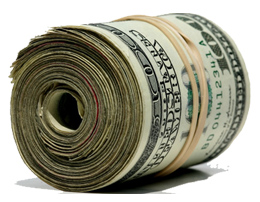When people submit offers on a property in today’s crazy real estate market where some homes get 5 offers, the listing agent usually asks for a letter of approval from the bank who is going to give you the loan. In the case of some buyer paying all cash, they will ask for proof of funds.
Well, what if you cannot qualify for a conventional loan or you don’t have $700,000 in your savings account? Does that mean you will lose the property? Yes, unless you get a California hard money loan.
How do I qualify?
With a hard money loan, you usually only have to come up with a 30% down payment instead having it all in cash. You can then submit your purchase offer contract to the listing agent with your letter of intent from your private hard money lender.
There is a warning associated with getting a hard money loan. Often times people take real estate seminars on how to get a property with no down payment. That hasn’t been done in about 10 years where if someone were alive enough that could fog mirror, then they would get the loan. Not anymore.
The seminar teacher will not tell you that you do have to have some skin in the game, in other words, a down payment. With Los Angeles hard money loans or San Diego hard money loans, you cannot get a property for nothing down, unless perhaps you are a veteran and getting a VA loan.
Making the decision get in the real estate game
After realizing that you don’t qualify for a conventional loan and you don’t have a million dollars in the bank, you can then seriously think that maybe in the great state of California, that a hard money loan may be just what the doctor ordered. After you fill out the minimal paperwork for the hard money lender and you show him or her your proof of funds, you are then prepared to make offers on your investment properties. If you are a contractor, you might have an advantage in that you can do the repairs at cost and the repairs you cannot, you know the right sub-contractors to get it done. You don’t even have to be a contractor, maybe you are just good at fixing things.
After you said yes to hard money…
You call your private hard money lender and tell them how much of a down payment you have. He will then figure how much of a home you can afford. Don’t forget to figure in closing costs and rehab costs.
I have had many people who took out a loan from someone and they ran out of money right in the middle of their rehab project. They call me frantically for a hard money loan when it’s too late because they don’t have enough equity in the property yet.
Do your homework and then get a good hard money lender.







A hard money loan is a species of real estate loan collateralized against the quick-sale value of the property for which the loan is made. Most lenders fund in the first lien position, meaning that in the event of a default , they are the first creditor to receive remuneration . Occasionally, a lender will subordinate to another first lien position loan; this loan is known as a mezzanine loan , a second lien or a junior lien.
There are private investors who, if the interest rate is high enough and the perceived risk is low enough, they will put the money up,” says Pam Strickland, owner of Mortgage Consulting Services in Santa Barbara, Calif. Brokers and other intermediaries who arrange hard money — or private money — loans “go to people who have money to lend and they match them up with people who can’t get money any other way,” Strickland says.
Instead, hard money lenders use the value of the property itself in determining whether to make the loan. Specifically, lenders focus on the “after repair value,” or ARV, which is an estimate of what the property will be worth once the renovation or development phase is complete.